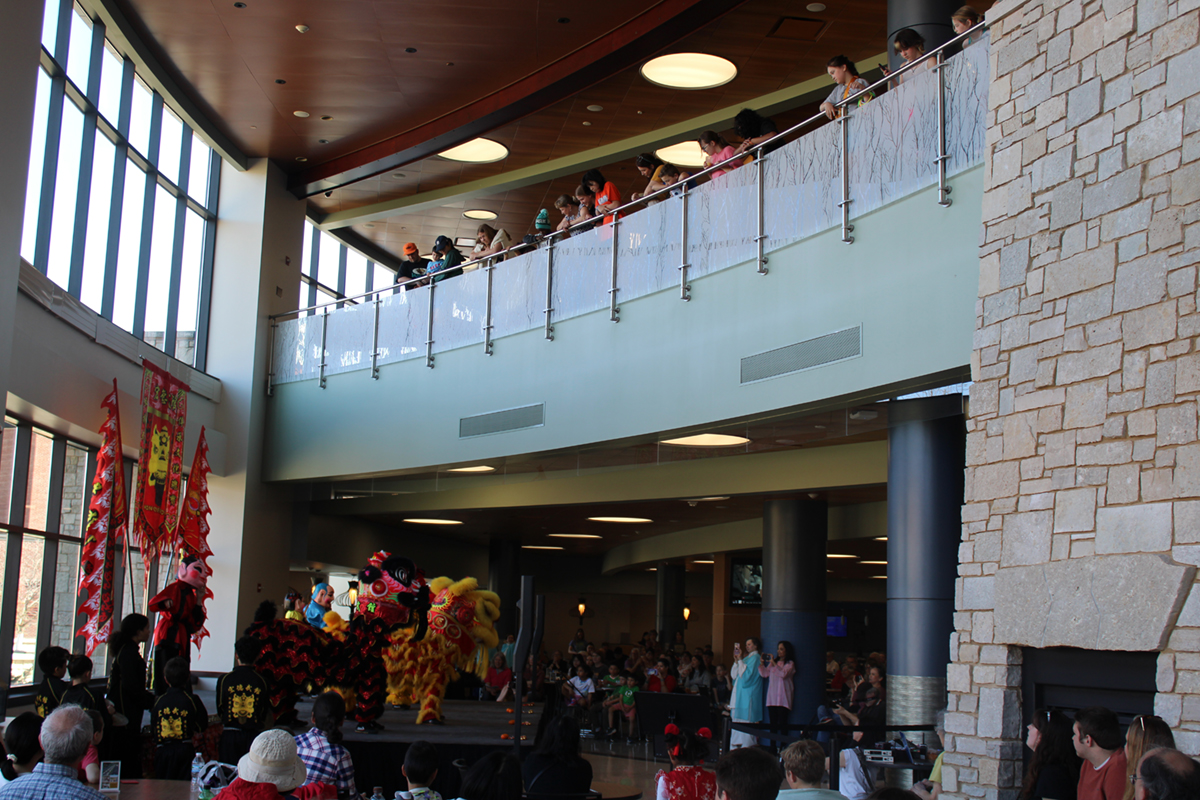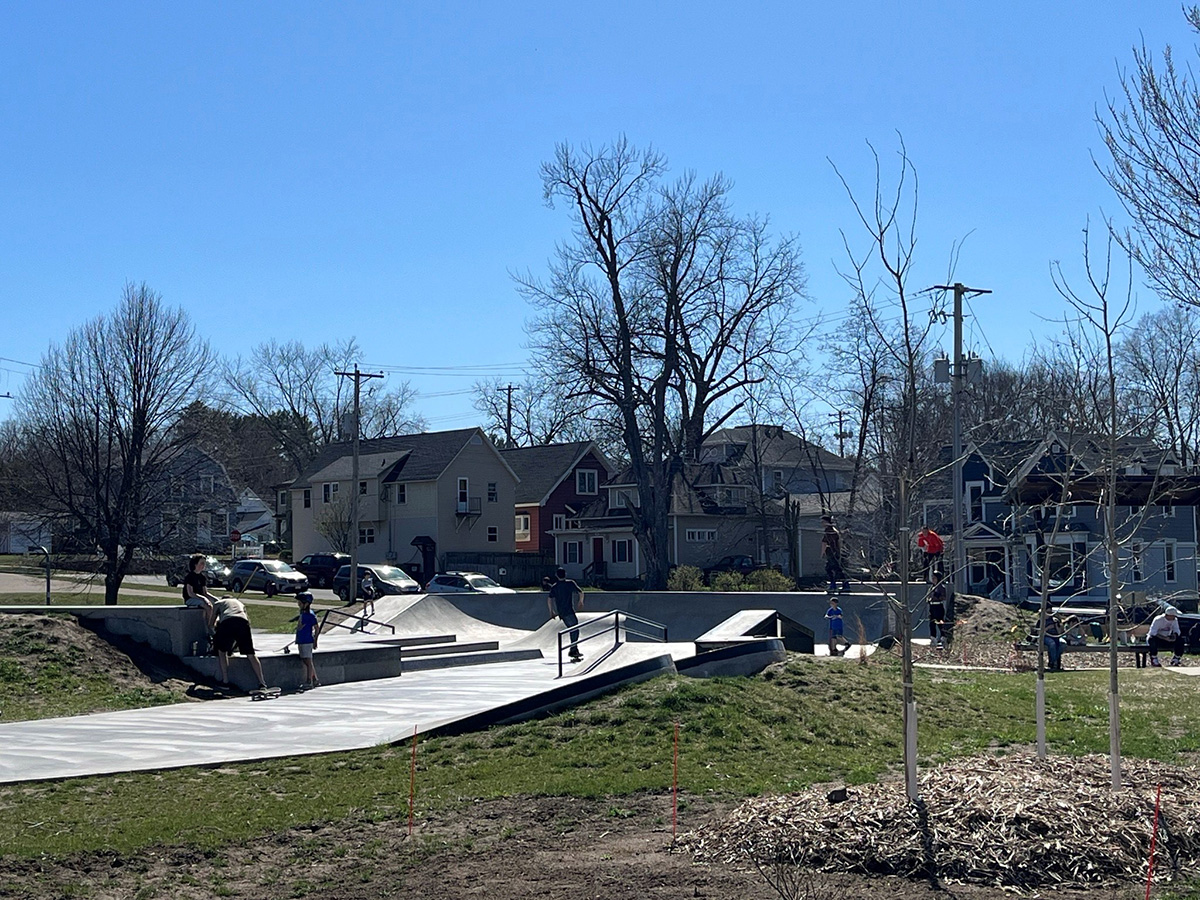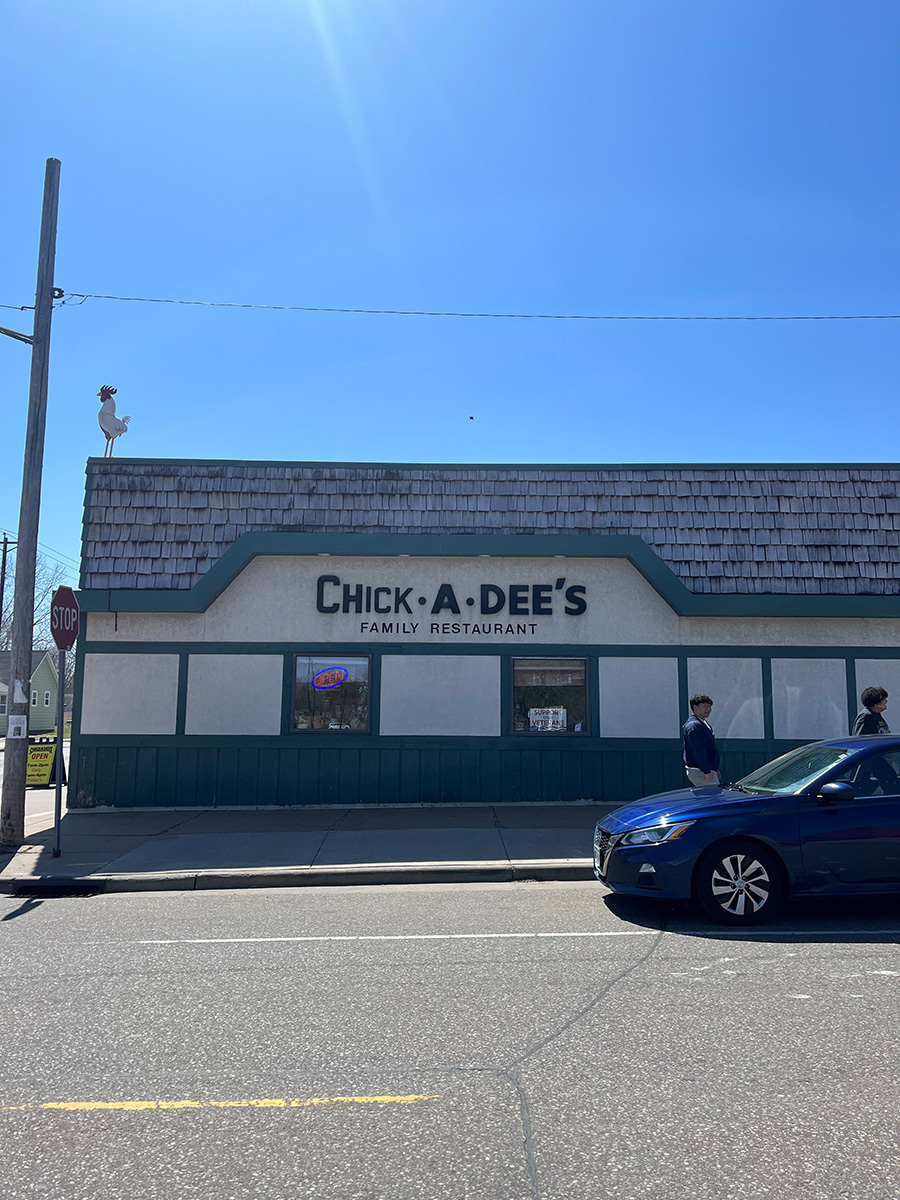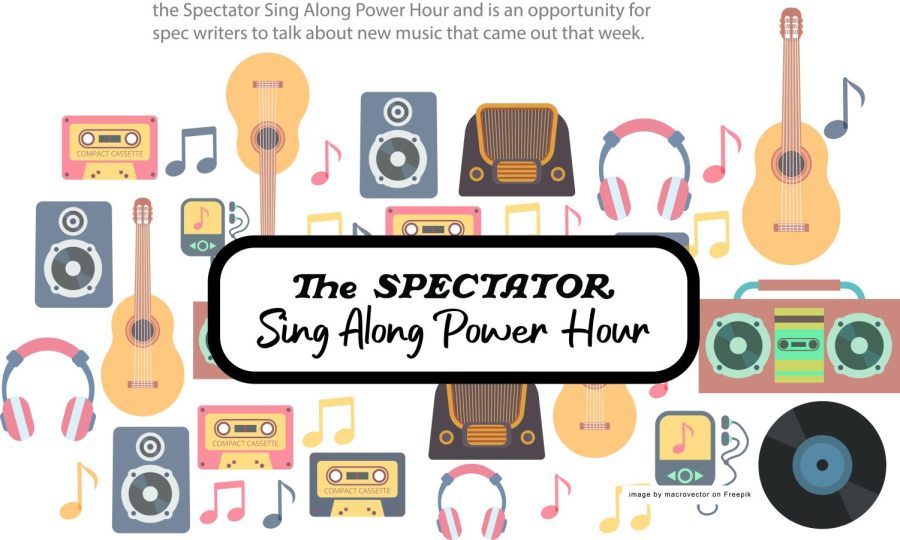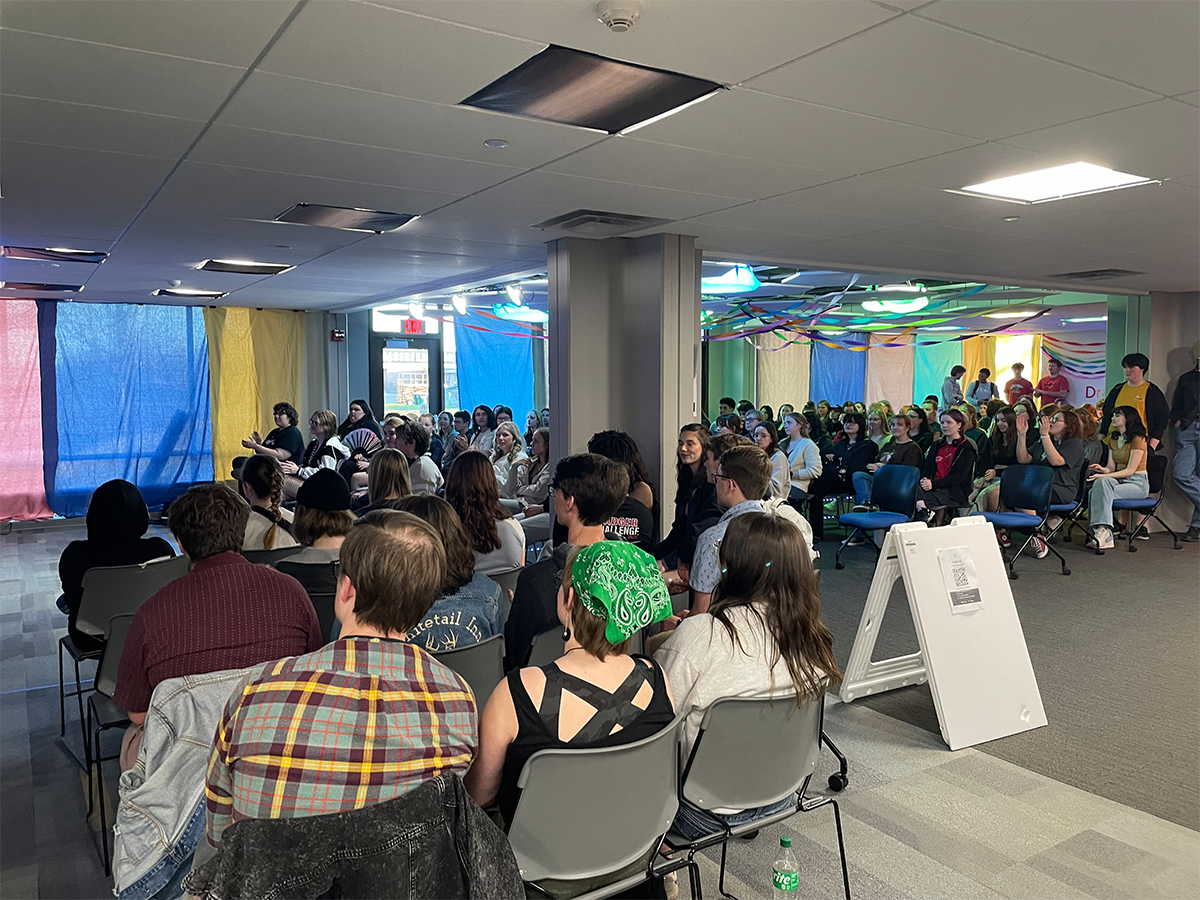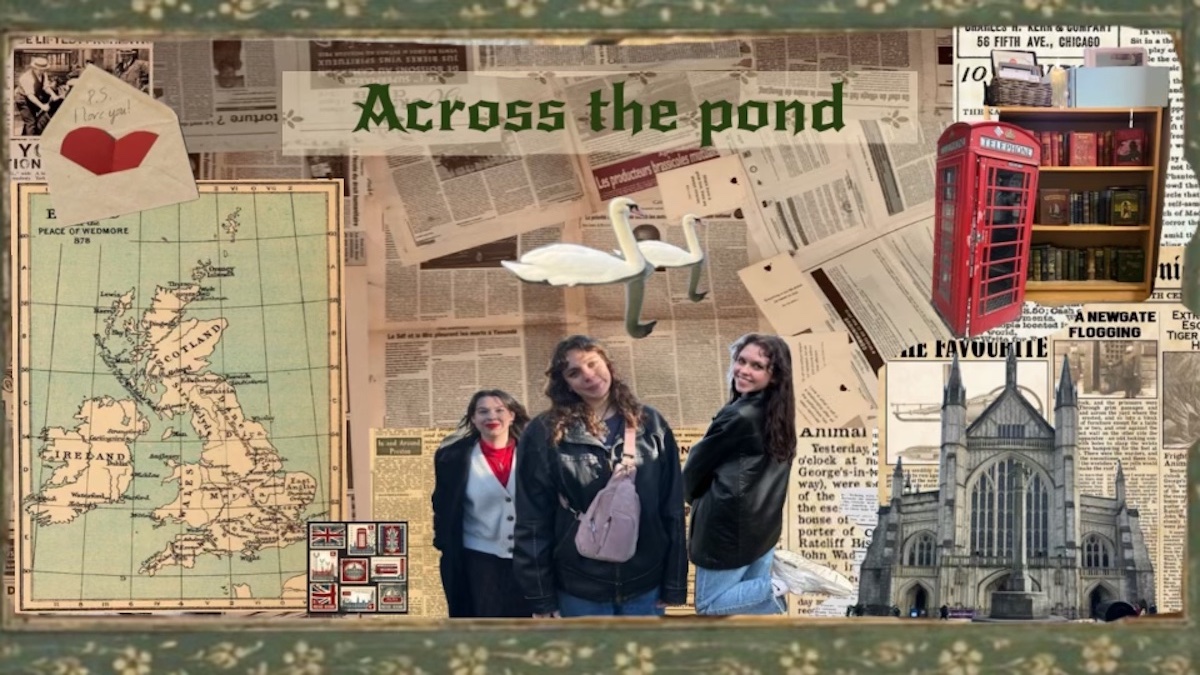It’s a few minutes before 2:00 p.m., and class is about to start. However, nobody is seated at a table waiting for the professor to enter.
Instead, people are changing into costumes and moving sets around. Two are at a piano looking over sheet music, and a few are singing.
These students aren’t about to sit through a PowerPoint and take pages of notes; they’re about to sing and act their hearts out.
The class is called the Opera Workshop, a course that meets during the fall semester.
Mitra Sadeghpour, who teaches the course, said there are classes training students how to sing and then some teaching how to act, but this workshop goes beyond.
“This is the class where we’re trying to do both at once,” she said.
Junior Abby Doering, who takes the workshop and performed in last semester’s production of “The Magic Flute,” said this course has been very helpful to her.
“I’ve learned how to be a better performer, a better singer,” she said. “I’ve just learned that there’s so much more to opera than I thought.”
The name of the workshop is somewhat misleading, however, because it also teaches musical theater including scenes from “West Side Story” and “Candide” instead of exclusively opera.
Sadeghpour said the main difference between opera and musical theater is in the amount of singing. In opera, all words tend to be sung, whereas large parts of musical theater are spoken. She emphasized, though, that the most important parts in a musical are sung.
“The really dramatic moments … where someone’s emotions are so high that they can’t just say it,” Sadeghpour said, “they have to sing it.”
Senior Anthony Reed, who was also in “The Magic Flute” last semester, enjoys both opera and musical theater for the songs and being able to show an audience the emotion within a song.
“(The performance is) elevated by the music,” he said. “I like being able to communicate in that way.”
Specifically, this course teaches students movement, acting skills and singing across the stage without a microphone.
Sadeghpour said one major facet of the class is showing students how to understand the character that they will play. This is called character analysis.
“A character analysis is figuring out, ‘What does my character want from a scene?’” she said.
Senior Meagan Seubert finds that using analysis that she learned in Opera Workshop has helped her performances in community theater productions off of campus.
“It made me very much aware of myself as a character in a role,” she said. “It helped me develop my character a lot better than ever before.”
Sadeghpour said students will be able to tell you anything about their character, but it is harder to show a character’s desires and emotions to an audience.
Another skill taught in the workshop is diction, or clearly pronouncing the words so that everybody comprehends the dialogue.
“If they (the audience) don’t understand,” Sadeghpour said, “it’s not worth doing it.”
She said this is especially true when singing in English since the audience
understands it.
Doering said there’s a greater leeway when singing in a foreign language due to lack of understanding.
“You can get away with bad or sloppier Italian, sloppier German,” she said, “even though we work so hard on it.”
Reed finds that it takes a lot of extra preparation to get it right. One has to pronounce the words and also learn their meaning.
“You have to basically memorize the entire score versus just hearing it in English and being able to respond in your native language,” Reed said.
Sadeghpour said regardless of if it’s in English or a foreign language, diction is more difficult in opera versus in
musical theater.
“There’s some challenges in opera because of the extreme range that’s so different from the speaking voice,” Sadeghpour said.
Doering added that beyond the dialogue, there is a lot to take in with opera.
“My parents came to see the opera once, and were just blown away by everything,” she said. “It’s just very overwhelming.”
Sadeghpour stressed that it is beneficial to see a performance multiple times to gain a better understanding.
The public will get its two chances to see the workshop perform next Monday and Tuesday at 7:30 p.m. in Gantner Music Hall for free.
She said there is so much involved with opera, and a lot of work needs to be done to complete it. In this case, the students did the vast majority of it. Audiences will get to see all the different and varied facets of this art form.
“It’s not just singing, it’s not just visual, it’s not just instrumental, it’s not just dancing,” she said. “It’s all of it.”

